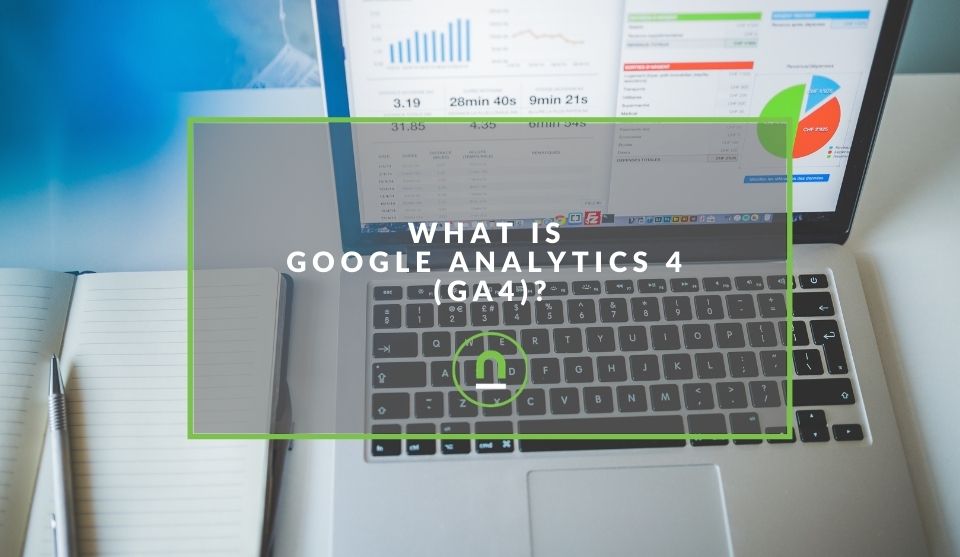Recent posts

Money Talks
Everything You Need to Know About SASSA Status Check
13 April 2025

Mind, Body & Soul
The Genetic Diversity of Cannabis Seeds
12 April 2025

Money Talks
How Small Businesses Can Leverage Blockchain Technology
02 April 2025

Industry Experts
Mastering Personalization in Digital Marketing
31 March 2025
Popular posts
Extravaganza
Trending Music Hashtags To Get Your Posts Noticed
24 August 2018
Geek Chic
How To Fix iPhone/iPad Only Charging In Certain Positions
05 July 2020
Extravaganza
Trending Wedding Hashtags To Get Your Posts Noticed
18 September 2018
Money Talks
How To Find Coupons & Vouchers Online In South Africa
28 March 2019
What Is Google Analytics 4 (GA4)?
31 December 2020 | 1 comments | Posted by John Wu in nichemarket Advice
Google Analytics has become one of the most popular website tracking platforms around, with its easy integration with the rest of Google's marketing suites such as Google Tag Manager, Google Ads, Google AdSense And Google Optimize.
The platform competes with a host of other tracking services like Matomo, Chartbeat and Yandex Metrica, to name a few, which is why they need to innovate and improve the product continually.
Google Analytics offers a comprehensive tracking suite, even with its free version, and it uses the data they collect to improve the service.
In mid-October of 2020, Google introduced Google Analytics 4 (GA4) the most extensive update to Google Analytics since 2012. Naturally, when Google rolls out new products, there's a lot of banter, some praising it and some hating it, so what is in store for users with Analytics 4?
GA4 offers some significant changes for the SEOs, marketers, and webmasters who have been used to the functionality of their existing GA account. It's only fitting that we review it for those of you interested in upgrading.
We take a look at the upgrade and give you our hot take.
What is Google Analytics 4?
GA4 offers data lovers a new data collection framework, tools, and reports allow you to measure the user journey across channels and devices and provide much deeper insights. Up until now, GA has always been limited by its pageview method of tracking, but as sites move to render without page load such as angular sites, GA became a little harder to use in its standard method and required workarounds.
In addition, businesses now have multiple online elements, and customers interact with a brand on various devices, which means just collecting data on one channel doesn't show a complete view of users' journeys.
Finally, different states and countries have different policies; users are demanding more control over how their data is used as well as browsers and devices are blocking/controlling the cookies and data collection.
Google needed to upgrade their service to serve these various use cases and hence the birth fo GA4.
Note: Should you require a high-level summary of GA4's changes you can find our guide here
What is different about Google Analytics 4?
Report organisation
The easiest change most will notice is the way the UI works and how reports are generated. Reports are organised around the different phases of the customer lifecycle.
The phases are:
- Acquisition
- Engagement
- Monetisation
- Retention
Events
Event tracking was available on GA3 but needed to have custom hits set up either via GTM or on click elements in your site. In GA4, there are several events automatically tracked, without having to implement them on the page or via Google Tag Manager.
These events include page view, page views scroll, outbound links, site search, video engagements, and file downloads. You can also configure other events via code or Google Tag Manager.
Event parameters
Event parameters are additional data that provides the context to the events. There are several parameters automatically tracked with each event, and up to 25 additional can be configured and captured.
User properties
There are several user properties or attributes automatically collected by Google Analytics. In addition to those properties, you can add additional 25 properties to users.
Deeper analysis
Analysis hub provides a way for you to slice and dice data by various segments and dimensions and get better insights.
Cross-device journey and Google ads integration
Using cross journey data, you can create audience segments that automatically update based on rules you define. For example, if a user starts a journey on a mobile app but completes on the web, then you might want to remove them from the retargeting list, with cross-device integration that can be easily set up.
Integration with BigQuery
You can send hit level data to BiqQuery; this can be done in real-time or as a daily batch process. The integration is easy and does not require any deep technical knowledge. By putting data in BigQuery, you can integrate other offline and online data sources to get a complete view of the user journey and marketing performance.
New Search Functionality in the GA4 interface
Machine learning is at the core of search functionality so that you can not only search various reports but ask questions about your data. This was available in GA3 and has slightly improved in GA4 but not worth it for most of us.
What are your upgrade options?
Google Analytics is not yet ready for full commercial consumption so we would recommend against using it as your only tracking tool, for now, you can use it to build funnels and source additional data but don't let it be your only data source.
We would recommend either sticking to GA3 for now or running both at the same time.
The future path for Google Analytics
Google has not released any timelines for when (or if) Universal Analytics will be sunset; however, they have made it clear that future Google Analytics updates will be geared towards Google Analytics 4.
It is highly likely that Google will eventually phase out older versions of Google Analytics, but we can see from this release, a lot still needs to be done to improve GA4. Even Google themselves recommend that users keep their existing traditional Google Analytics properties for now.
It would be wise for sites running GA3 to set up a GA4 to run concurrently, so you have a data set to work with once you're forced to move over.
Contact us
If you want to know more about digital marketing for your site don’t be shy we’re happy to assist. Simply contact us
Are you looking to promote your business?
South African Business owners can create your free business listing on nichemarket. The more information you provide about your business, the easier it will be for your customers to find you online. Registering with nichemarket is easy; all you will need to do is head over to our sign up form and follow the instructions.
If you require a more detailed guide on how to create your profile or your listing, then we highly recommend you check out the following articles.
Recommended reading
If you enjoyed this post and have a little extra time to dive deeper down the rabbit hole, why not check out the following posts about Google Analytics.
- How To Track Social Sharing In Google Analytics
- Get Back Your Google Analytics Account With These Simple Steps
- How To Properly Set Up Google Analytics With Shopify Sites
- Google Analytics Interaction Hit Vs Non-Interaction Hit
- How To Track Video Views With Google Analytics
- How To Track Search and Zero Search Queries In Google Analytics
You might also like
SASSA Status Check for SRD R370
26 March 2025
Posted by Khan Sahab in Money Talks
Check your SASSA SRD R370 status online! Get quick updates on your application. Learn how to track your grant and understand the status check process...
Read moreHow Small Businesses Can Leverage Blockchain Technology
02 April 2025
Posted by Nicholas Tay in Money Talks
Unlock growth with blockchain! Discover how small businesses can use this tech for secure transactions, supply chain transparency and innovative solu...
Read more{{comment.sUserName}}
{{comment.iDayLastEdit}} day ago
{{comment.iDayLastEdit}} days ago
 {{blogcategory.sCategoryName}}
{{blogcategory.sCategoryName}}

